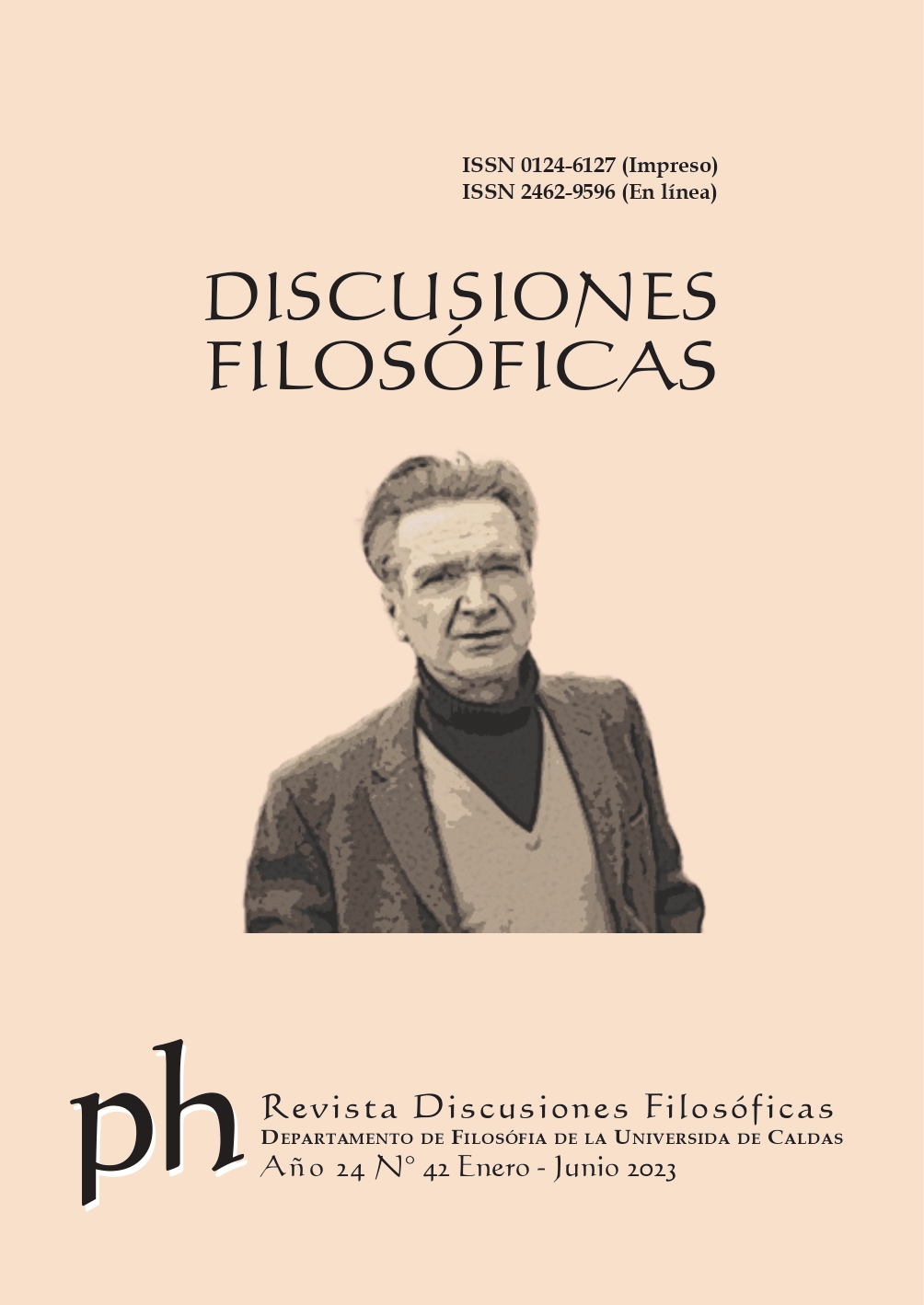Autores/as
Resumen
El Realismo Científico Estándar sostiene el enfoque metafísico de que el mundo es como es independiente de la mente. Sin embargo, el presente artículo demuestra cómo esta postura es incompatible con todas las teorías no-eliminativistas sobre la mente, lo cual hace que la postura sea inconsistente, incompatible con la ciencia, elimina la consciencia, la intencionalidad, la causación mental y la ética. Se propone una tesis realista alternativa que conserva la idea de que el mundo en general es de la forma que es, independiente de lo que pensemos sobre él, compatible con la mente como parte real del mundo. Este cambio restaura la posibilidad de consistencia, la mente, la consciencia, la intencionalidad, la ciencia y la ética.
Palabras clave
Citas
Arendt, Hannah. Eichmann in Jerusalem: A Report on the Banality of Evil. Penguin, 1963.
Berkeley, George. Principles of Human Knowledge. Penguin, 1710/2004.
Block, Ned. “Introduction: What is Functionalism?” In Readings in Philosophy of Psychology vol. 1. Harvard University Press, 1980, pp. 171-184.
Cárdenas Castañeda, Leonardo. “La Inferencia a la Mejor Explicación en el Debate Realismo/Anti-realismo.” Discusiones Filosóficas 12, 2011, pp. 89-105. http://www.scielo.org.co/pdf/difil/v12n18/v12n18a04.pdf
Carnap, Rudolph, Hans Hahn & Neurath, Otto. The Scientific World Conception: The Vienna Circle. Ernest Mach Society, 1929.
Chalmers, David. The Conscious Mind: In Search of a Fundamental Theory. Oxford University Press, 1996.
Chakravartty, Anjan. “Scientific Realism.” The Stanford Encyclopedia of Philosophy, 2017. Edward N. Zalta (ed.), URL =
Chomsky, Noam. “Biolingüística y Capacidad Humana.” Forma y Función, 19, 2006, pp. 57-71.
Costa, Petra. The Edge of Democracy. Netflix, 2019.
Descartes, René. The Philosophical Works of Descartes. Cambridge University Press, 1641/1911.
Eddington, Arthur. The Nature of the Physical World. Cambridge University Press, 1928.
Einstein, A. The Collected Papers of Albert Einstein. John Stachel, et al. eds. Princeton University Press, 1987.
Einstein, A. “The Theory of the Affine Field.” Nature, 112, 1923, pp. 448-449. https://www.nature.com/articles/112448a0
Fleetwood, Steve. “Bhaskar and Critical Realism.” Oxford Handbook on Contemporary Sociology, Social Theory and Organizational Studies. Oxford University Press.
Giovanelli, Marco. “Einstein’s Philosophy of Science.” Stanford Encyclopedia of Philosophy, 2019. Edward N. Zalta (ed.), URL = https://plato.stanford.edu/entries/einstein-philscience/
Greenwald, Glenn. “NSA Collecting Data on Millions of Verizon Customers Daily.” The Guardian, 2013. https://www.theguardian.com/world/2013/jun/06/nsa-phone-records-verizon-court-order
Hempel, Carl. “The Logical Analysis of Psychology.” In Ned Block, Readings in the Philosophy of Psychology. Harvard University Press, 1935/1980.
Herman, Edward & Noam Chomsky. Manufacturing Consent: The Political Economy of Mass Media. Pantheon, 1988/2002.
Jackson, F. “What Mary Did Not Know.” Journal of Philosophy, 83, No. 5, 1986, pp. 291-295. http://links.jstor.org/sici?sici=0022-362X%28198605%2983%3A5%3C291%3AWMDK%3E2.0.CO%3B2-Z
Kahneman, Daniel. Thinking, Fast and Slow. Farrar, Straus and Giroux, 2013.
Kastrup, Bernardo. “The Universe in Consciousness.” Journal of Consciousness Studies 25, 2018, pp. 125-155. https://www.imprint.co.uk/wp-content/uploads/2019/03/Kastrup_Open_Access.pdf
Kim, Jaegwon. Physicalism, or Something Near Enough. Princeton University Press, 2005.
Lewis, David. “Psychophysical and Theoretical Identifications.” Australasian Journal of Philosophy, 50, 1972, pp. 249–258. https://andrewmbailey.com/dkl/Psychophysical_and_Theoretical.pdf
Macdonald, Cynthia & Graham Macdonald. 2006. “The Metaphysics of Mental Causation.” The Journal of Philosophy, 103, pp. 539-576. https://doi.org/10.5840/jphil20061031110
Penrose, Roger. The Emperor’s New Mind. Oxford University Press, 1989.
Pereboom, Derk. “Robust Nonreductive Materialism.” Journal of Philosophy, 99, 2002, pp. 499–531. https://www.jstor.org/stable/3655563
Plato. Theatetus. Oxford University Press, 369BC/2014.
Popper, Karl & John Eccles. The Self and Its Brain. Springer, 1977.
Psillos, Stathis. “Scientific Realism and Metaphysics.” Knowing the Structure of Nature. Palgrave Macmillan, 2009. https://doi.org/10.1057/9780230234666_2
Psillos, Stathis. Scientific Realism: How Science Tracks Truth. Routledge, 1999.
Railton, Peter. “Moral Realism.” Philosophical Review, 95, 1986, pp. 163–207.
Ramsey, William. “Eliminative Materialism.” Stanford Encyclopaedia of Philosophy, 2019. Edward N. Zalta (ed.), URL = https://plato.stanford.edu/entries/materialism-eliminative/
Russell, Bertrand. The Analysis of Matter. Routledge, 1927/2001.
Sankey, Howard. “Ciencia, Sentido Común y Realidad.” Discusiones Filosóficas 11, 2010, pp. 41-58.
Smart, JJC. “Sensations and Brain Processes.” The Philosophical Review, 68, 1959, pp. 141-156.
Turing, Alan. “Computing Machinery and Intelligence.” Mind, 59, 1950, pp. 433–460. https://academic.oup.com/mind/article/LIX/236/433/986238
Van Fraassen, Bas. 1980. The Scientific Image. Oxford: Oxford University Press.
Wittengstein, Ludwig. Tractatus Logico-Philosophicus. Kegan Paul, Trench, Trubner & Co., 1922.
Yablo, Stephen. “The Real Distinction Between Mind and Body.” Canadian Journal of Philosophy, 20, 1990, pp. 149-201. DOI: 10.1080/00455091.1990.10717225

 PDF
PDF
 FLIP
FLIP

























